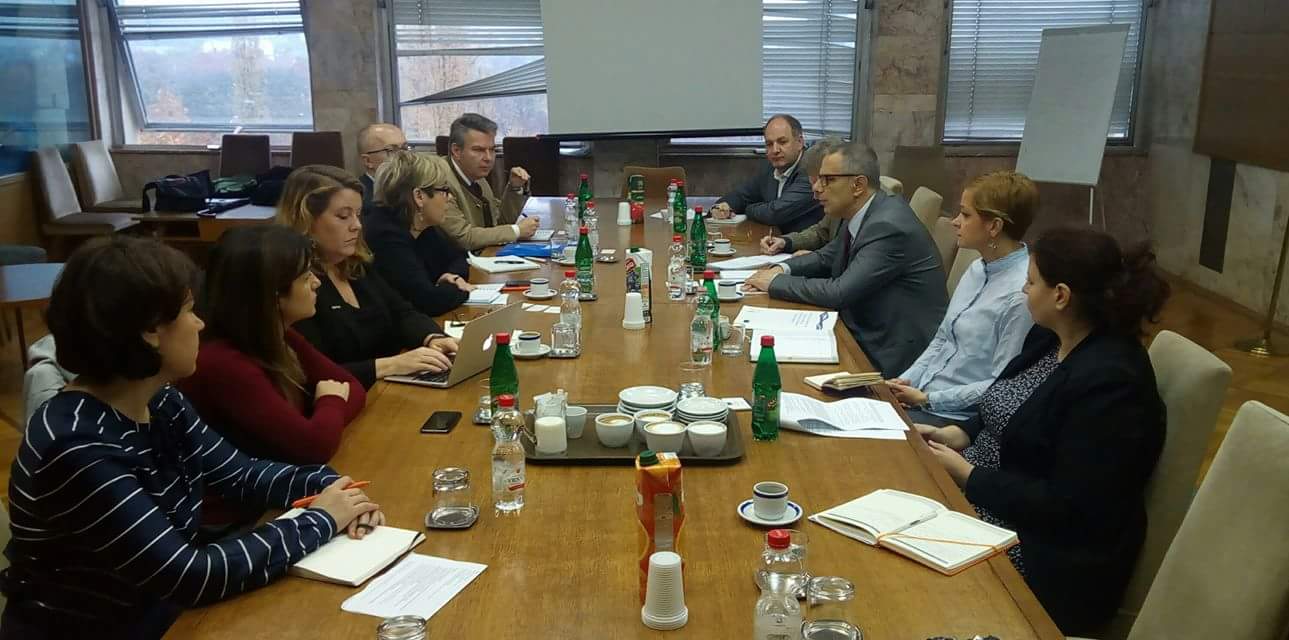The visit of the delegation of the Conference of INGOs of the Council of Europe in Belgrade (Serbia) took place from 13 to 15 November. The visit focused on NGOs participation in the decision-making process in different sectors of public policies and public affairs.
The visit was co-organised by the Civil Rights Defenders in Belgrade, with the help of the Permanent Representation of Republic of Serbia to the Council of Europe.
Several meetings took place with a large number of civil society organisations. The delegation met NGOs focused on access to justice, on minority issues and acting against discrimination, with NGOs providing social services or assisting refugees and asylum seekers. The delegation visited the Humanitarian Law Centre specialised in Transitional Justice, and which “supports post-Yugoslav societies in the promotion of the rule of law and acceptance of the legacy of mass human rights violations” as well as the refugee reception center Aid Miksaliste.
The delegation had the pleasure to meet with the Commissioner for information of Public Importance and Personal Data Protection, the Director and the team of the Office for Cooperation with Civil Society, the Chair of the Committee on Foreign Affairs of the National Assembly and representatives of the Ministry of Justice and the Ministry of Public Administration and Local Self-Government.
The delegation also met with independent Media Organizations and associations, discussing the lack of public support and the atmosphere of intimidation faced in particular by investigative journalists. They claim 69 physical attacks so far this year against journalists and they feel that their protection by authorities is not effective and that “impunity is terrible”, as one of them said.
On the basis of the exchanges that took place, the Serbian law-making process seems to be very dynamic and productive. In some areas of public policies, NGOs participate very actively in the law-drafting process, and in some cases, the law (law on foundations, access to information) is adopted on the basis of models coming from civil society. Some sectors of public administration are willing to cooperate with civil society to develop reforms but at the same time, there are still many obstacles to democratic participation resulting from a high level of centralisation of decision making. The lack of policy planning makes implementation of the laws difficult and very often unpredictable for all stakeholders concerned. We heard however from the Ministry of Public Administration and Local Self-Government that a new systemic approach to policy planning is being prepared and expressed the hope that civil society will be a full partner in this process.
We call on Council of Europe and the European Union to give real and sustainable support to independent media and civil society organisations in Serbia and to encourage Serbia authorities to improve the effective implementation of what is very good legislation.
The report about the visit will be presented during the winter session of the Conference of INGOs.
Watch the video - Interview with Anna Rurka, President of the Conference of INGOs
ReportComments by the Serbian Government



